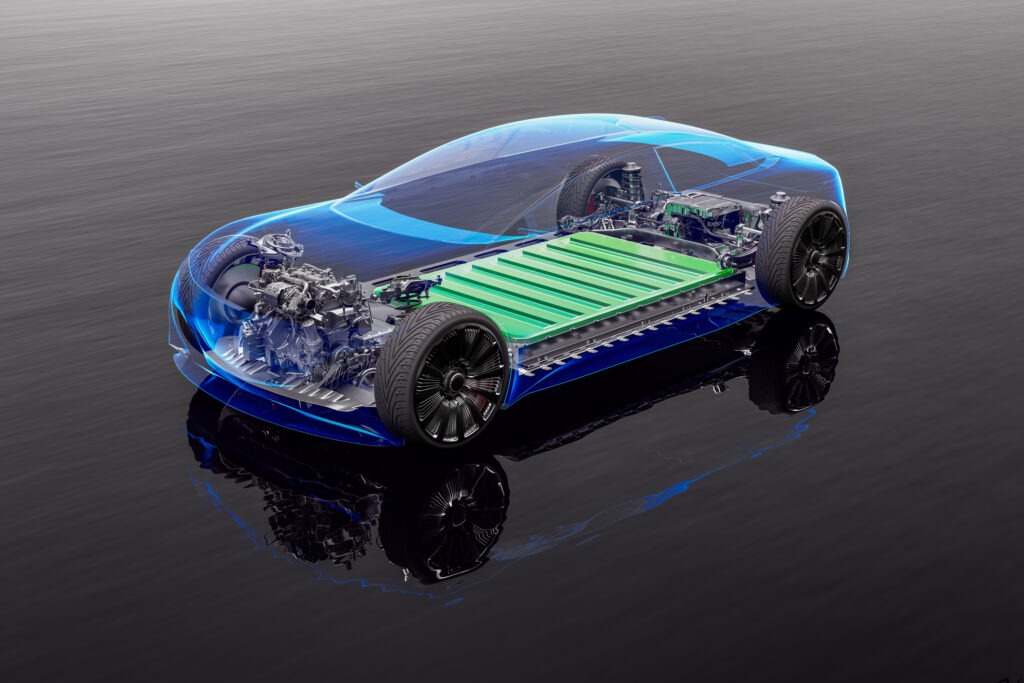EVs account for over 10% of the Spanish new-car market in March
25 April 2024

With the Spanish electric vehicle (EV) market less advanced than some of its European neighbours, how did the sector progress during March? José Pontes, data director at EV Volumes, evaluates the numbers with Autovista24 journalist Tom Hooker.
A total of 9,762 EVs were registered in Spain during March. Plug-in hybrid (PHEV) deliveries dropped 7% last month to 5,559 units, while battery-electric vehicles (BEVs) slumped 3% to 4,203 registrations.
Both technologies followed the overall market performance in March, where registrations fell some 5% year on year, the first decline in 14 months. The market did grow by 3% in the first quarter, while EV deliveries reached 27,086 units.
EVs claimed an 11% share of the Spanish new-car market across the first three months of the year, with BEVs accounting for 4.7% alone. The EV share dropped marginally to 10% in March, as BEVs took 4.4% of the market.
Spain’s 2024 EV market share currently sits behind Portugal where plug-in models account for over a quarter of registrations. Yet, the region remains ahead of other countries across the bloc such as Greece (9.8% share) and Italy (6.2% share).
PHEVs have claimed a 58% share of Spain’s EV market so far in 2024. This was thanks to 15,700 registrations, up 6% year on year. The powertrain outperformed its plug-in counterpart, despite BEVs enjoying greater growth in the first quarter, up 8% with 11,386 deliveries.
This difference may be due to a lack of infrastructure affecting BEV demand, with PHEVs receiving almost the same level of incentives as all-electric models.
Plug-in buyers in Spain can benefit from subsidies of up to €45,000 when purchasing new BEVs and PHEVs through the Moves incentive scheme. This can be increased further through regional subsidies.
Tesla takes top two
The Tesla Model 3 was Spain’s best-selling EV in March, reaching 911 registrations. The sedan is benefitting from a recent refresh. The Tesla Model Y is around €5,000 more expensive than its sibling and sat over 350 units behind with 555 deliveries.
Rounding out the top three was the Cupra Formentor PHEV, thanks to a record 528 registrations in its domestic market. The crossover was just 27 units away from second place.
Below, the Mercedes-Benz GLC PHEV came fourth, achieving 419 deliveries. The SUV was the first of three plug-in hybrids from the German brand in the top 10. Then came the Ford Kuga PHEV in fifth with 333 deliveries, the third best-selling PHEV model in March.
Meanwhile, the Mercedes-Benz A250 PHEV posted 275 registrations in sixth, its best result since December 2022. The MG4 took seventh, reaching 255 registrations to become the third-most-popular BEV during the month.
Just two units behind, the Mercedes-Benz GLA PHEV came eighth with 253 deliveries. March’s other record result came from the Audi Q3 PHEV in ninth, managing a best-ever 241 registrations.
PHEV power
In the first quarter of 2024, 15 out of the 20 best-selling EVs in Spain were PHEVs, with two having the additional choice of a BEV variant. However, the quantity of plug-in hybrid models was not enough to topple Tesla’s two BEVs.
The Model 3 was the region’s most popular EV across the first three months of the year, with 2,047 units taking to the road. This meant the model accounted for 7.6% of all EV deliveries.
The Model Y followed in second, reaching 1,511 registrations, over 500 units behind its sibling.
Below, the first-quarter table shared similarities with March’s results. The Cupra Formentor PHEV took third (1,254 units), the Mercedes-Benz GLC PHEV finished fourth (1,228 units) and the Ford Kuga came fifth (827 units).
Mercedes-Benz was still able to place three PHEV models in the top ten during the first quarter. The GLA PHEV came sixth with 808 deliveries, while the A250 PHEV achieved 600 registrations in ninth. In seventh, the MG4 kept its position as the third best-selling BEV thanks to 674 deliveries.
The only other two BEV models to feature in the top 20 were the BMW iX1 in 16th (406 units) and the Volvo EX30 in 18th (381 units). The latter is expected to climb up the table in the coming months.
Outside the top 20, notable performances came from the Mercedes-Benz EQA (296 units), the Dacia Spring (268 units) and the Peugeot e-208 EV (247 units).
Mercedes-Benz mastery
Mercedes-Benz was the best-selling EV brand in Spain across the first three months of 2024, accounting for 14.6% of all plug-in registrations. The carmaker has benefitted from its investment in PHEVs.
Tesla took second with a 13.3% share, while BMW finished third. The manufacturer managed a 7% share, less than half of its German competitor. Kia featured in fourth place, reaching a 5.9% share, helped by its Sportage and Niro PHEV models.
Volvo finished fifth, narrowly beating Cupra with the same share of 5.7%. The two brands were separated by just six units. While the Swedish carmaker has a range of competitive vehicles such as the XC60, EX30 and XC40, Cupra is targeting its efforts with the Formentor. Audi followed behind in seventh (4.7% share), as Peugeot took eighth (4.6% share).
With brands gathered under parent companies, Volkswagen Group benefitted from its wide range of sub-brands, taking first with a 17.2% market share. The Mercedes-Benz Group secured second (14.9% share) while Tesla reached third (13.3% share).
Stellantis also took advantage of a large model fleet, finishing fourth with a 12.5% share. The OEM was trailed by the Hyundai Motor Group in fifth (9% share). Sixth place went to the BMW Group (7.5% share), as Geely-Volvo came seventh (7.4% share).



